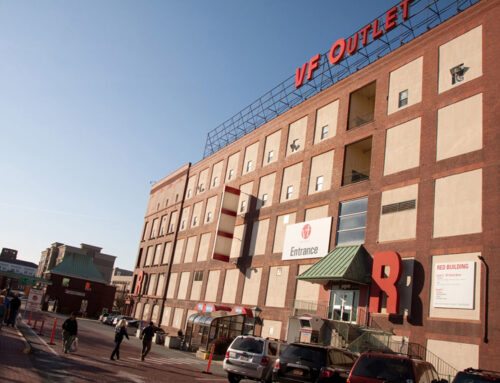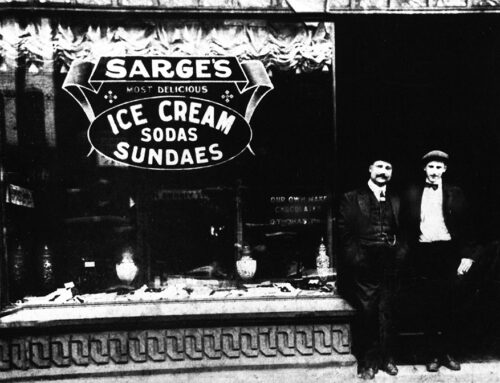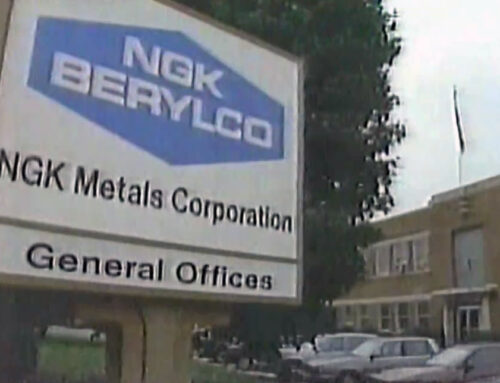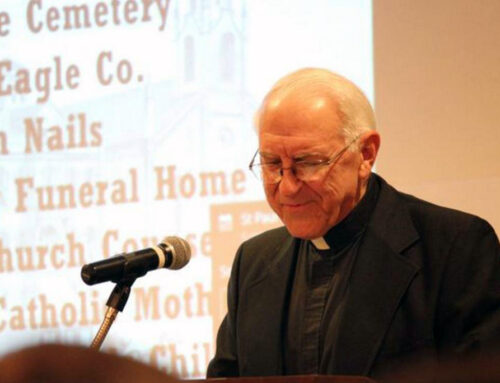Organized crime is a society that seeks to operate outside the control of the American people and their governments. It involves thousands of criminals, working within structures as complex as those of any large corporation, subject to laws more rigidly enforced than of legitimate governments. Its actions are not impulsive but rather the result of intricate conspiracies carried on over many years and aimed at gaining control over fields of activity in order to amass huge profits.
The core of organized crime activity is the supplying of illegal goods and services – gambling, loan sharking, narcotics, and other forms of vice – to countless numbers of citizen customers. But organized crime is also extensively and deeply involved in legitimate business and in labor unions. Here it employs illegitimate methods – monopolization, terrorism, extortion, tax evasion – to drive out or control lawful ownership and leadership and to exact illegal profits from the public. And to carry on its many activities secure from governmental interference, organized crime corrupts public officials.
Former Attorney General Robert F. Kennedy illustrated its power simply and vividly. He testified before a Senate subcommittee in 1963 that the physical protection of witnesses who had cooperated with the Federal Government in organized crime cases often required that those witnesses change their appearances, change their names, or even leave the country. When the government of a powerful country is unable to protect its friends from its enemies by means less extreme than obliterating their identities surely it is being seriously challenged, if not threatened.
In 1951 the U.S. Senate created the Special Committee to Investigate Organized Crime in Interstate Commerce. Soon known as the Kefauver Committee, the Senate probers targeted New York City, Chicago, and other metropolitan areas as Mafia centers. But they also selected a few small cities to illustrate how far organized crime’s tentacles stretched.
Reading, Scranton, Atlantic City and two Kentucky cities, Covington and Newport, were towns with unsavory reputations selected in the Senate probe. The special committee sent its investigators to snoop around Reading for a few weeks in May, then subpoenaed known racketeers to appear at a hearing in Washington. Certain city officials also received orders to attend.
At the Kefauver Committee hearings in the U.S. Senate in 1951 (download final report by clicking here (PDF document, 0.98 MB), it was revealed that organized crime was extending its tentacles into Reading, PA.
Five years later, after a new Democratic administration took over in the city, the IRS launched a campaign to collect taxes from gambling machine operators. Two years after that the federal Alcohol and Tax Unit raided a huge still and IRS agents completed investigations of two large numbers banks. After President Kennedy signed into law interstate gambling legislation in 1961, J. Edgar Hoover sent 100 FBI agents into Reading to arrest more than 100 gamblers in a large craps casino. Year after year local law enforcement looked the other way as racketeers took over the city. A bookie working for the Philadelphia Mafia was murdered in Reading before testifying at a grand jury hearing. The local mob kingpin, Abe Minker, was eventually convicted and imprisoned, as was Mayor John Kubacki. The war raged for six years before organized crime lost its control of vice in Reading.
A few years after the dust had settled and Reading was no longer the target of federal investigations, the city still remained a curiosity to the national media and academics researching organized crime.
In 1967, “The Wincanton Report,” a federally funded study, published about corruption and organized crime in a small city. Five years after The Wincanton Report was published, Reading was reminded once again of its recent past when “The Corrupt City” was being shown on national television. As viewers were told, racketeering was not as visible in 1971, but the threat of its revival seemed possible.
This documentary was a spinoff of Wincanton, but it was graphic evidence of why the city had gained its terrible reputation one decade earlier. The film introduced a shadowy figure, identified only as a convicted murderer who had killed a former racketeer leader. It was Johnny Wittig telling how he transferred Abe Minker’s payoff money to Police Chief Charlie Wade on a lonely country road. Then there was Wade in his automobile telling the interviewer how his tape recorder picked up conversations with passengers at that same money exchange site in the country. Also Charlie and his German shepherds were seen at his fenced-in Cumru Township home where he feared the mob would come after him because of his incriminating testimony in court.

Conversations with political club members were taped, documenting that many citizens still wanted illegal gambling although they didn’t like political shakedowns.
Tom McBride, the Pennsylvania attorney general, had this to say about the political picture and the role Abe Minker played:
“Reading seemed to me to always be in a vacuum, a vacuum of leadership, a vacuum of people who cared deeply enough about the city, and a single man driven by single-minded objectives moved in to fill that vacuum. The usual business leadership and political focus seemed to evaporate and he took over. And once the pattern was set, he held control, almost in a feudal sense.”
Victor Yarnell, mayor at the time of filming, and his police chief, Bernie Dobinsky, were quite open about the threat of racketeers making a comeback in the near future. Dobinsky frankly stated it was a strong possibility that could happen. He told about a mobster offering him weekly sums to allow a gambling joint to operate. He rejected the offer, but said the realization was that “this guy was ready to pay to stay in business. I don’t think it would take too long because I really think there are people poised just waiting for this department to relax. From information given to me and my personal contacts, I don’t doubt that there would be a racket element ready to move in.”
The film’s narrator, Rod MacLeish, asked Yarnell about this rackets group Dobinsky was talking about and recent offers made to people in his administration.
“Well, it occurred very soon after I took over this job,” Yarnell stated. “He visited me and said he would be an ideal man to have as a go-between with the police and the racketeers he knew very well. He did this with a straight face and I thought he really felt this was a good idea. But I didn’t think too much about it and I tended to laugh it off, and that was all we heard about it.”
Paul Galan, director of the Group W Urban American film, recalled that City Hall personnel were not overly cooperative when his TV interviewers arrived in town. But the production crew overcame this reluctance and succeeded in talking to enough people to gain an overview of how things operated during the corrupt years. He said at the 2006 film festival that he was amazed by the Runyonesque characters his crew met in Reading.
“Charlie Wade was one of a kind,” Galan said. “He was fascinating in that he really seemed driven to have a good police force but wanted the prestige even more. He was a complex individual.”
Although racketeering in Reading declined during the late 1960s, it did not disappear. Numbers writing continued even after 1978 when the Pennsylvania State Lottery was introduced. With the loss of many industrial jobs in recent years, the later purveyors of sports betting and numbers have sharply decreased. Former factories gave each numbers bank a strong base in which to operate. But it remained a profitable business for a gready reduced number of independents.
When the state legalized off track betting, Berks County was awarded the first off-track betting parlor.
Traffic in illegal drugs now presents Reading with a far greater crime problem than illegal gambling, extortion, and prostitution ever did. Before the proliferation of marijuana, cocaine, and heroin, only a handful of murders were attributed to racketeering in Berks County. There were headline killings such as Ben Myers’ during Prohibition, Tony Moran’s in 1945, and Joe Donato’s in 1963. But the mob violence in those eras pales in the gory glare of today’s drug wars. Most of today’s drug racketeers don’t live long enough to establish reputations.
It is usually implied, if not asserted, that organized crime is a menace and has to be fought. Evidently the crime itself is a menace; and if the crime would disappear with the weakening or elimination of the organization, the case for deploring organization, and combating it altogether, would be a strong one. If the alternative is “disorganized crime” – if the criminals and their opportunities will remain, with merely a lesser degree of organization than before – the answer is not so easy.
There is at least one strong argument for favoring the monopoly organization of some forms of crime. It is the argument about “internalizing” some of the costs that fall on the underworld itself but go unnoticed, or ignored, if criminal activity is decentralized. The individual hijacker might be tempted to kill a truck driver to destroy a potential witness, perhaps to the dismay of the underworld, which may suffer from the public outrage and the heightened activity of the police. A monopoly or a trade association could impose greater discipline. This is not a decisive argument, nor does it apply to all forms of organization nor necessarily to all criminal industries if it applies to a few; but it is an important point.
It may be that modem society contracts out some of its regulatory functions to the criminals themselves. Surely some of the interests of organized crime coincide with those of society itself – minimization of gangland feuds, minimization of all those violent byproducts of crime, even a kind of negotiated avoidance of certain classes of crime. If society has no legal means of policing some kinds of crime, or lacks the political authority to compromise directly with the criminals, maybe what society does is to let the underworld itself provide some of the necessary discipline; that may require the existence of organizations strong enough to impose discipline. That is, organizations that can offer or withhold employment, punish recklessness, and at least passively try to stick to the business of criminal transfer of cash and property rather than destruction of wealth and harm to people.
Just as in war one may hope that the enemy government remains intact, thus assuring that there is an authority to negotiate with and to discipline the enemy troops themselves, maybe in the war on crime it is better that there be a “command and control” system intact on the other side.
What organized crime wants is money and power. What makes it different from law-abiding organizations and individuals with those same objectives is that the ethical and moral standards the criminals adhere to, the laws and regulations they obey, the procedures they use are private and secret ones that they devise themselves, change when they see fit, and administer summarily and invisibly. Organized crime affects the lives of millions of Americans, but because it desperately preserves its invisibility many, perhaps most, Americans are not aware how they are affected, or even that they are affected at all. The price of a loaf of bread may go up one cent as the result of an organized crime conspiracy, but nobody has any way of knowing why they are paying more. If organized criminals paid income tax on every cent of their vast earnings everybody’s tax bill would go down, but no one knows how much.
The millions of dollars it can spend on corrupting public officials may give it power to maim or murder people inside or outside the organization with impunity; to extort money from businessmen; to conduct businesses in such fields as liquor, meat, or drugs without regard to administrative regulations; to avoid payment of income taxes or to secure public works contracts without competitive bidding.
The purpose of organized crime is not competition with visible, legal government but nullification of it. When organized crime places an official in public office, it nullifies the political process. When it bribes a police official, it nullifies law enforcement.






Leave A Comment